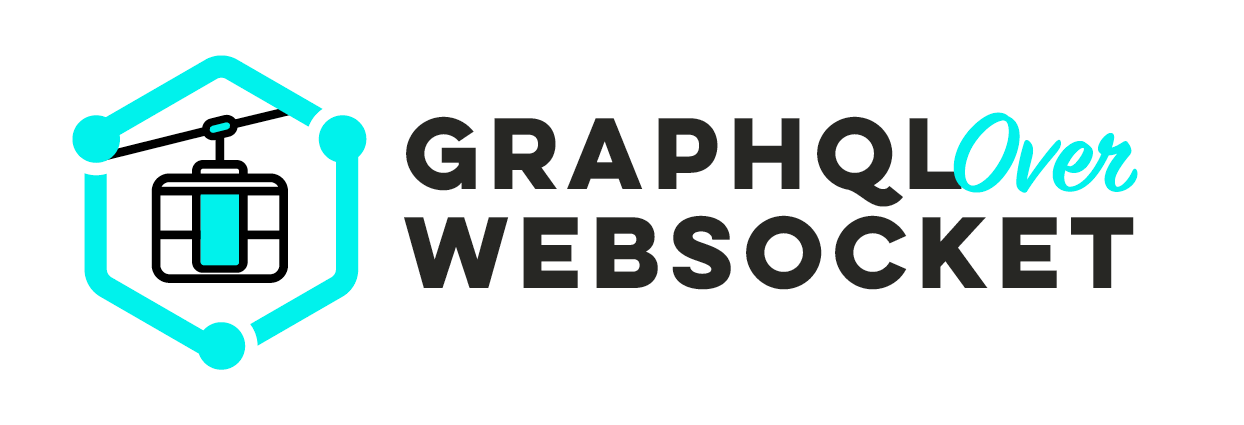GraphQL WS

GraphQL Websocket allows you to use the subscription feature of GraphQL using the Websocket transport protocol. This module is based on the graphql-ws package. It pre-configures the socket server and GraphQL server to work together.
Feature
- Support multiple GraphQL server
- Enable subscription feature of GraphQL
Installation
This module need to be used with @tsed/apollo module. So, you must install it before (see here).
npm install --save @tsed/graphql-ws graphql-ws ws @types/wsyarn add @tsed/graphql-ws graphql-ws ws @types/wspnpm add @tsed/graphql-ws graphql-ws ws @types/wsbun add @tsed/graphql-ws graphql-ws ws @types/wsimport {Configuration} from "@tsed/di";
import "@tsed/platform-express";
import "@tsed/apollo";
import "@tsed/graphql-ws"; // auto import plugin for @tsed/apollo
import {join} from "node:path";
@Configuration({
apollo: {
server1: {
// GraphQL server configuration
path: "/",
playground: true, // enable playground GraphQL IDE. Set false to use Apollo Studio
plugins: [], // Apollo plugins
wsServerOptions: {
// See options descriptions on WS website
},
wsUseServerOptions: {
// See options descriptions on GraphQL WS website
}
// Give custom server instance
// server?: (config: Config) => ApolloServer;
// ApolloServer options
// ...
// See options descriptions on https://www.apollographql.com/docs/apollo-server/api/apollo-server.html
}
},
graphqlWs: {
// global options
wsServerOptions: {
// See options descriptions on
},
wsUseServerOptions: {
// See options descriptions on
}
}
})
export class Server {}The PubSub class
WARNING
The PubSub class is not recommended for production environments, because it's an in-memory event system that only supports a single server instance. After you get subscriptions working in development, we strongly recommend switching it out for a different subclass of the abstract PubSubEngine class. Recommended subclasses are listed in Production PubSub libraries.
You can use the publish-subscribe (pub/sub) model to track events that update active subscriptions. The graphql-subscriptions library provides the PubSub class as a basic in-memory event bus to help you get started:
To use the graphql-subscriptions package, first install it like so:
npm install graphql-subscriptionsA PubSub instance enables your server code to both publish events to a particular label and listen for events associated with a particular label. We can create a PubSub instance like so:
import {PubSub} from "graphql-subscriptions";
import {registerProvider} from "@tsed/di";
export const pubsub = new PubSub();
export const PubSubProvider = Symbol.for("PubSubProvider");
export type PubSubProvider = PubSub;
registerProvider({provide: PubSub, useValue: pubsub});Depending on the schema resolver (nexus, type-graphql, etc.), you can use the pubsub instance to publish events and subscribe to them in your resolvers.
WARNING
To use the subscription feature with TypeGraphQL, you have to give pubsub instance to the buildSchemaOptions:
import {Configuration} from "@tsed/di";
import "@tsed/platform-express";
import "@tsed/apollo";
import "@tsed/typegraphql";
import "@tsed/graphql-ws"; // auto import plugin for @tsed/apollo
import {join} from "node:path";
import {pubsub} from "./pubsub/pubsub";
@Configuration({
apollo: {
server1: {
// GraphQL server configuration
path: "/",
playground: true, // enable playground GraphQL IDE. Set false to use Apollo Studio
plugins: [], // Apollo plugins
buildSchemaOptions: {
pubsub
}
}
},
graphqlWs: {
// global options
wsServerOptions: {
// See options descriptions on
},
wsUseServerOptions: {
// See options descriptions on
}
}
})
export class Server {}Here is a simple example of how to use the pubsub instance in a resolver using the type-graphql library:
import {PlatformContext} from "@tsed/platform-http";
import {InjectContext, Inject} from "@tsed/di";
import {ResolverController} from "@tsed/typegraphql";
import {Arg, Mutation, Query, Root, Subscription} from "type-graphql";
import {RecipeService} from "../../services/RecipeService";
import {PubSubProvider} from "../pubsub/pubsub.js";
import {Recipe, RecipeNotification} from "./Recipe";
import {RecipeNotFoundError} from "./RecipeNotFoundError";
@ResolverController((_of) => Recipe)
export class RecipeResolver {
@InjectContext()
private $ctx: PlatformContext;
@Inject()
private recipeService: RecipeService;
@Inject(PubSubProvider)
private pubSub: PubSubProvider;
@Query((returns) => Recipe)
async recipe(@Arg("id") id: string) {
const recipe = await this.recipeService.findById(id);
if (recipe === undefined) {
throw new RecipeNotFoundError(id);
}
return recipe;
}
@Query((returns) => [Recipe], {description: "Get all the recipes from around the world "})
recipes(): Promise<Recipe[]> {
this.$ctx.set("test", "test");
return this.recipeService.findAll({});
}
@Mutation((returns) => Recipe)
async addRecipe(@Arg("title") title: string, @Arg("description") description: string) {
const payload = await this.recipeService.create({title, description});
const notification = new RecipeNotification(payload);
this.pubSub.publish("NOTIFICATIONS", notification);
return payload;
}
@Subscription(() => RecipeNotification, {
topics: "RECIPE_ADDED"
})
newRecipe(@Root() payload: Recipe): RecipeNotification {
return {...payload, date: new Date()};
}
}